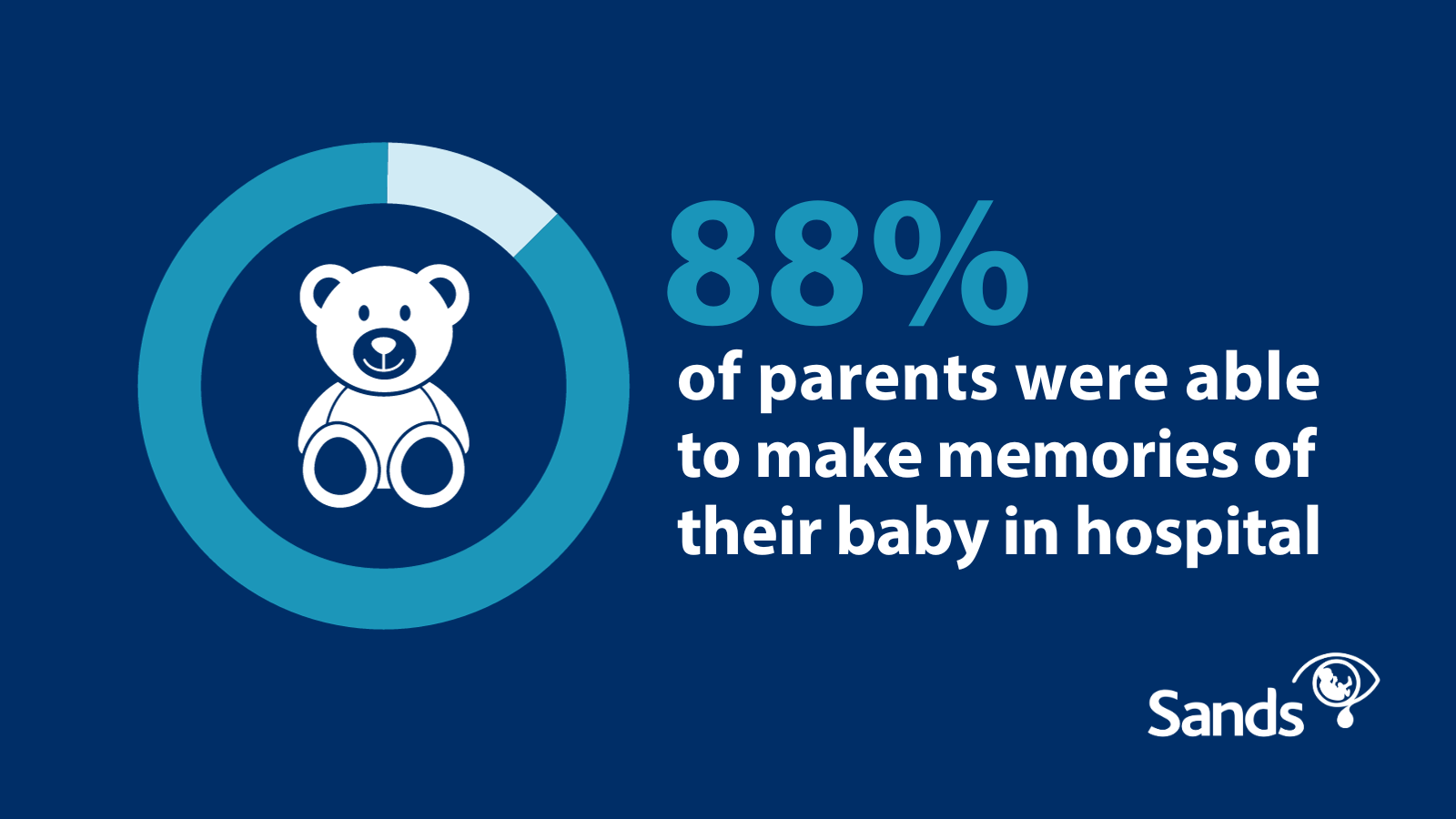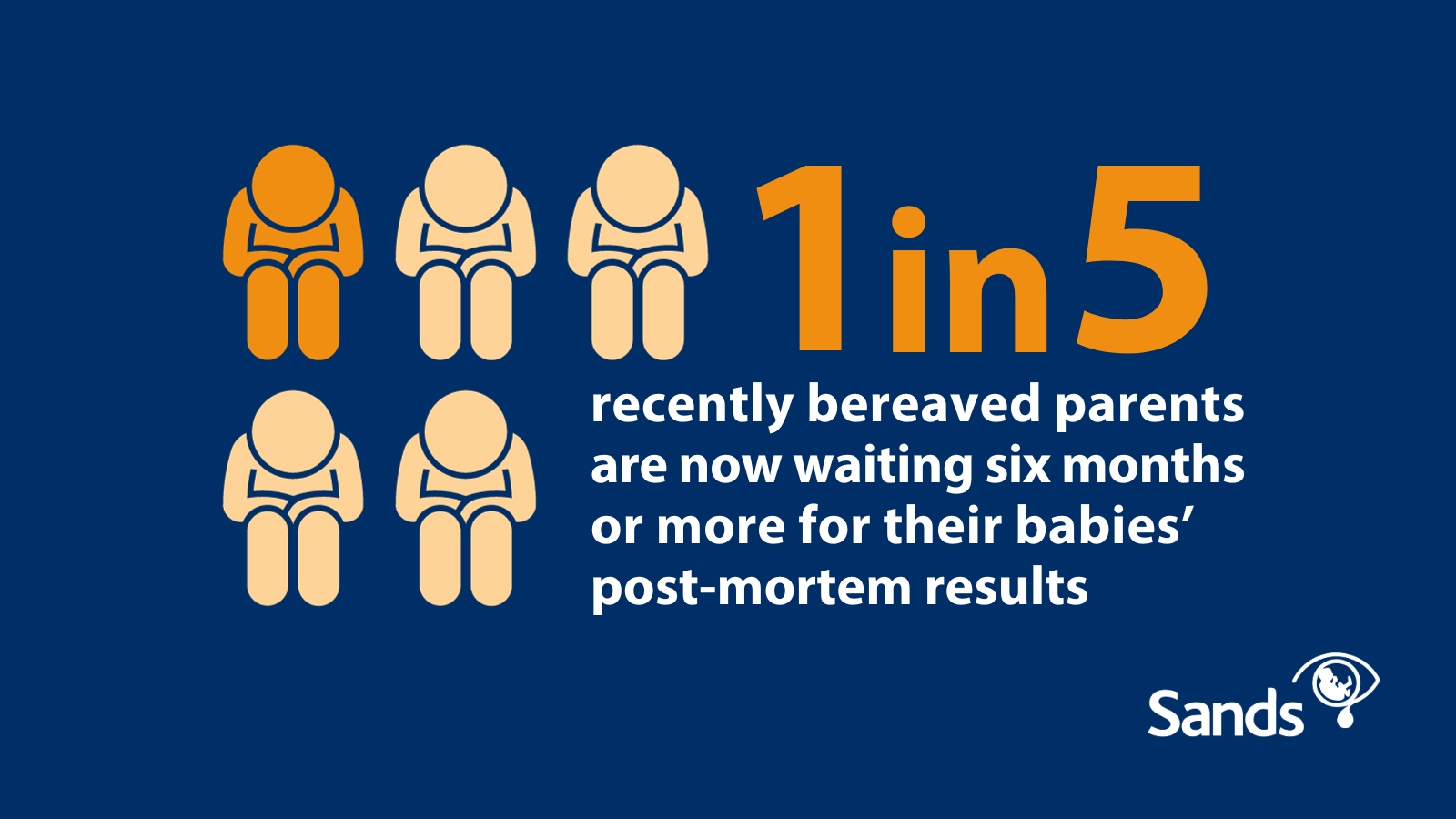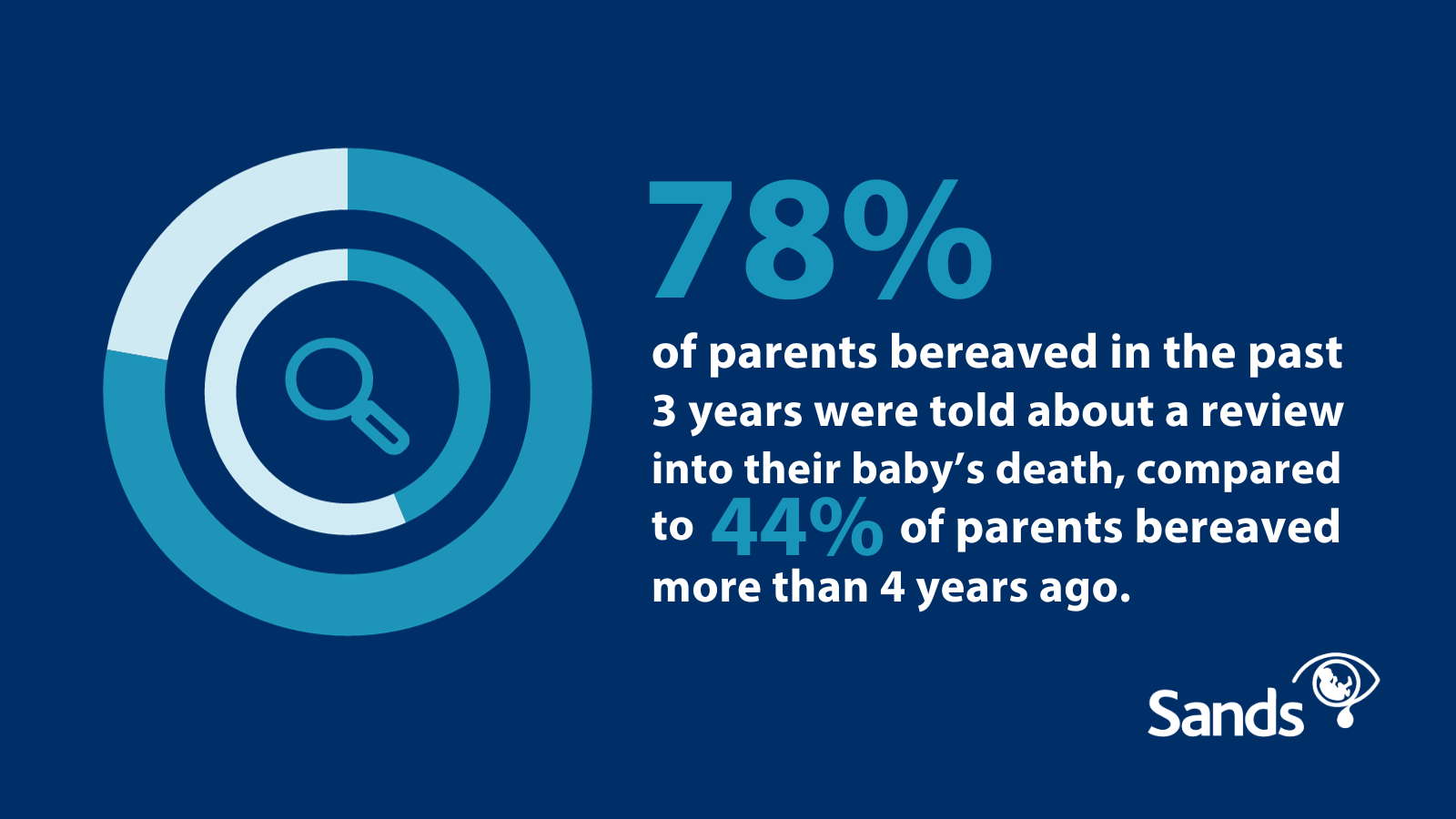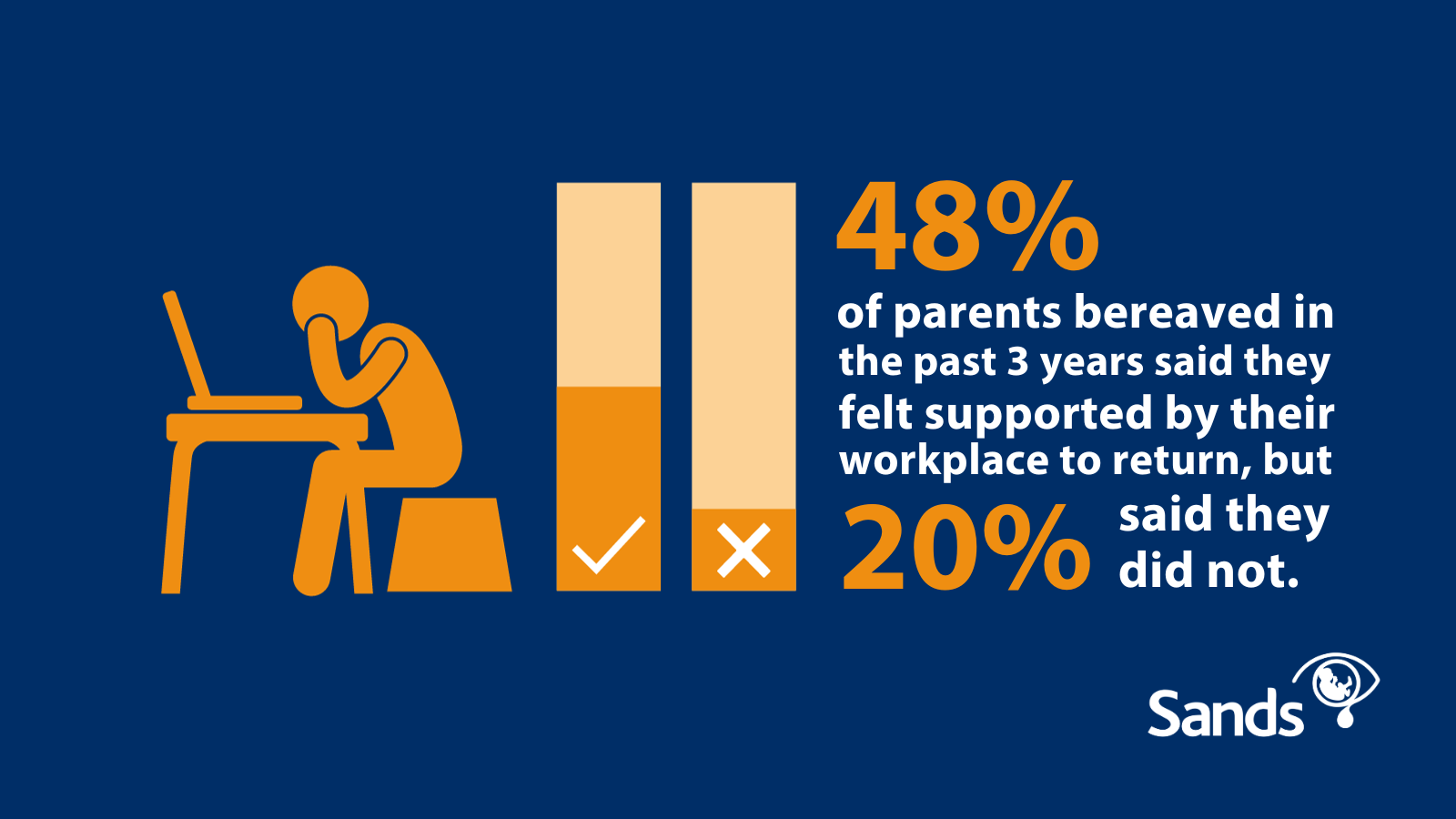This Baby Loss Awareness Week (9 to 15 October), we’re sharing parents’ voices, as we publish the results from the largest ever Sands survey of bereaved parents.
More than 1,600 families answered questions about their care during pregnancy, birth, bereavement and follow-up investigations, such as post-mortems.
The survey was undertaken during Sands Awareness Month, in June this year, and our team has been collating and analysing the answers parents shared. You can read the summary report online.
It’s clear from what parents told us, that while there has been much improvement over the past three years, there’s still much more to be done.
“Sands believes that hearing and acting on the concerns of pregnant women, their partners and their families is essential if we are to ensure safe and personalised care and save babies’ lives. Both Donna Ockenden and Bill Kirkup made clear in their recent reviews of maternity services, the vital importance of listening to bereaved parents.
“So it’s good to hear that parents’ experiences of bereavement care have improved over time, with 88% of those we surveyed saying they were able to make memories of their baby in the last three years compared to 74% before this. And that the proportion of parents who were told about reviews and investigations into their care has more than doubled, with more parents offered the opportunity to share their questions and concerns with the team reviewing the quality of their care.
“We hope to see these improvements continue and of course, in those areas where we are seeing declining standards and concerns being raised, challenge these and call for action. Sands is committed to listening to parents’ voices, and ensuring the experiences they share are used to influence policy and improve practice.”
Kate Mulley, Sands’ Director of Research, Education, and Policy

What the survey found
Experiences of pregnancy loss or baby death are incredibly personal. By listening to bereaved parents, we can better understand the impact of loss and raise awareness of the work required to improve pregnancy outcomes and save babies’ lives.
“They cared for my baby boy like he was their own, and I will be forever grateful that the three days he was alive, he was surrounded by such loving, caring people!”
Mother of a baby, born at 34 weeks, who died neonatally
During pregnancy, most parents bereaved recently felt they could easily understand the information they were given. Although there were some who didn’t believe information was always shared sensitively.
Parents often had concerns about their baby before they died, but unfortunately, some felt their concerns were not taken seriously or that healthcare professionals didn’t act on their concerns.
“When a young, inexperienced mother says she knows her body, medical staff need to LISTEN and act accordingly.”
Mother of a baby, born at 24 weeks, who died neonatally
Over half of parents whose baby died in the last three years shared they had confidence in the staff caring for them and most felt they had all the tests and monitoring they and their baby required, although a significant amount didn’t share this feeling.
In those key minutes and hours after birth, over three quarters felt confident in staff, but there were some concerns about lack of equipment and questions of “could more have been done for me and my baby?”
The experiences of parents whose baby spent time in specialist care or neonatal units were significantly better compared to others and have improved over time. The majority had confidence in staff and felt everything possible was done.
This wasn’t the case for everyone though, with some feeling they weren’t involved in decisions about their babies’ care and their choices and opinions were not taken seriously.

For parents whose baby had a post-mortem, the delay in results has worsened over time, with one in five waiting up to six months or more. Almost all said the waiting times had a significant impact on them.
"The wait was particularly difficult. I wanted to try for another baby, but I was told to wait. The wait delayed our grieving process. "
Mother of baby born at 36 weeks who died during labour
Reassuringly, the majority of more recently bereaved parents felt able to make a decision about post-mortem that was right for them, compared to those whose baby died four or more years ago.

When it comes to reviews into why babies have died and hospitals identifying improvements to make care safer, significantly more people who were recently bereaved were being told about the review compared to those who’d been bereaved four or more years ago. Asking questions and sharing concerns about care is crucial, and the number of those being given the opportunity to do this had doubled over time.

Taking time off work to process what’s happened can be an important part of the grief journey. Almost half who were bereaved in the past three years felt supported in the workplace upon returning.
“My wife took around four weeks off work. Her employer is absolutely amazing, but I wasn’t able to stop working as I’m the financial support for our family and self-employed. It would be lovely just to have a rest from the world, but they still want the rent money.”
Father where the pregnancy was terminated for medical reasons
Parents bereaved in the last three years are taking more time off work – but many remain uncertain about whether their employer had a baby loss policy.
How this survey will make a difference
Everything we have learned from the survey is already helping us continue to push for improvements in care so that every mother, baby and family should have high standards of care, no matter who they are or where they live.
We are sharing these findings with key stakeholders, including politicians and teams across the NHS, and we’ll be ensuring that the researchers we work with can access all this information too.
Thank you again to everyone who took part in, or shared information about the survey, so we could hear from so many different bereaved parents.
Read the Bereaved parents' experiences of care survey report.
Support for you
We understand that announcements like this can be incredibly difficult, and we are always here to support anyone affected. If you, or someone you know, needs emotional support after loss, find out all the different ways we offer support.
